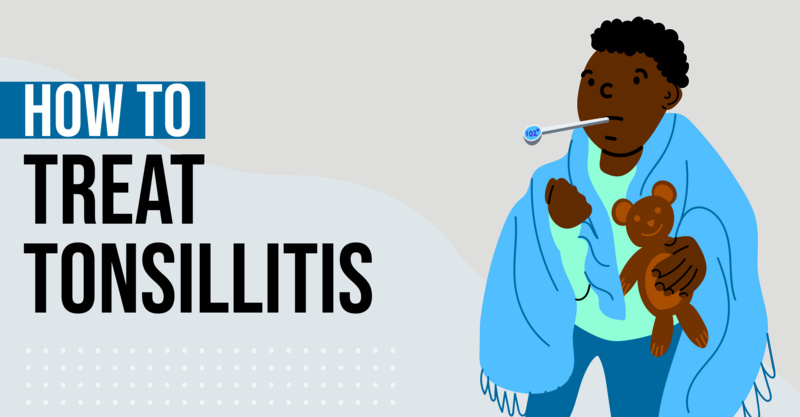Key Points
- Gastroenteritis, or the stomach bug, is a common disease in children, often leading to dehydration and caused by viruses such as rotavirus, norovirus, and astrovirus.
- Symptoms include loss of appetite, bloating, nausea, vomiting, abdominal cramps, and diarrhea, with severe dehydration requiring medical attention.
- The illness is more prevalent in winter due to indoor gatherings and can be spread through close contact with an infected person or touching a contaminated surface.
- Handwashing with soap and water is essential for prevention as hand sanitizers are not effective against these viruses. Other preventive measures include good hygiene, proper food handling, avoiding contact with sick individuals, and getting the recommended rotavirus vaccine.
- If symptoms persist or signs of severe dehydration occur, medical help should be sought. Urgent care clinics can provide treatments like antiemetic medication and IV fluids.
Gastroenteritis, commonly known as the “stomach bug” or "stomach flu", is a common and sometimes uncomfortable experience for children, explains the American Academy of Family Physicians (AAFP).
One of the main concerns with gastroenteritis in children is the risk of dehydration, which can be particularly serious for young children and babies. It's important for parents and caregivers to monitor their child's fluid intake and seek medical attention if they notice signs of dehydration.
Continue reading to learn more about what causes gastroenteritis, symptoms, and how to manage symptoms.
What Is Gastroenteritis?
Gastroenteritis is the medical term for what we know as “the stomach bug”, "the stomach flu", or “the vomiting bug”. Essentially, it is an inflammation of the stomach and intestines. It can lead to symptoms like upset stomach, vomiting, and diarrhea.
Gastroenteritis can be caused by several things, but the most common reason for children is a virus, according to the Merck Manuals. Viruses like rotavirus, norovirus, and astrovirus circulate all year long but tend to rise in the winter months. This is usually because people tend to gather inside more during colder months, which can expose more people to more germs.
Staying hydrated is the best and most important treatment, recommends the AAFP. However, sometimes severe dehydration warrants a trip to urgent care.
What Causes of Gastroenteritis in Children?
In children, viral gastroenteritis is caused by a viral infection — with viruses such as norovirus, rotavirus, and adenovirus being frequent culprits, according to the AAFP. In some cases, strep throat can also cause gastroenteritis symptoms. They also note that bacterial causes may include Escherichia coli, Salmonella, or Campylobacter.
Having close contact with an infected person is the most common way in which the infection spreads, according to the AAFP. This can happen if you share food or drink, kiss, share personal items, or come in contact with the vomit or feces of an infected person.
Touching a contaminated surface can also expose you to a virus that can cause gastroenteritis (like rotavirus, norovirus, or astrovirus). These viruses can live on surfaces for several hours, according to the AAFP. For children, who often explore with their hands and put objects in their mouths, picking up the stomach bug can be very easy.
Viruses that commonly cause gastroenteritis are not easily killed with hand sanitizer, so it is important to wash your hands with soap and water frequently during stomach flu season or if you are around anyone who has symptoms of the stomach bug.
Symptoms of Gastroenteritis
Viral gastroenteritis can lead to several symptoms that can range from mild to severe. Viral gastroenteritis may also be accompanied by dehydration, especially in young children and babies — for this reason, it's important to monitor for signs of severe dehydration and get medical attention if needed.
The Mayo Clinic lists the common signs of viral gastroenteritis in children as:
- Loss of appetite
- Bloating
- Nausea
- Vomiting
- Abdominal cramps
- Abdominal pain
- Diarrhea
How Is Gastroenteritis Treated?
Gastroenteritis is typically managed with supportive care — aimed at relieving symptoms and preventing dehydration, according to the AAFP. For children, this supportive care may include:
- Oral rehydration solutions to replace lost fluids and electrolytes
- A bland diet to ease gastrointestinal discomfort
- Monitoring for symptoms of severe dehydration
The Merck Manuals notes that you should continue offering fluids to babies and children, even if it causes more vomiting and diarrhea. They recommend:
- Offering babies a drink every time they vomit.
- Give older children a drink (150–200ml) after every big vomit or bout of diarrhea.
- Give small amounts of fluids often if your child is vomiting a lot (a mouthful every 15 minutes).
In some cases, it may be necessary to see a healthcare provider. If vomiting symptoms persist for several hours, a healthcare provider may prescribe antiemetic medications to help control vomiting. These antiemetic medications can be given by IV, or with a dissolvable tablet under the tongue, or suppository, according to the AAFP. Antiemetics work by reducing intestinal inflammation, which can then reduce nausea, vomiting, and diarrhea. This may be given along with fluids when treating dehydration.
How Can I Prevent Gastroenteritis?
Preventing gastroenteritis involves taking steps to avoid being exposed to the viruses and bacteria that can cause gastroenteritis, according to the AAFP. Viruses like rotavirus and norovirus often spread quickly in areas where many people gather—including schools. This includes:
- Practicing good hygiene, such as frequent handwashing with soap and water—particularly before handling food and after using the bathroom. Hand sanitizer is not enough to kill certain stomach bug viruses (like rotavirus, norovirus, and astrovirus). Washing your hands with soap and water is the best way to kill germs that you may have touched.
- Ensure that food is prepared and stored properly to prevent contamination.
- Avoid close contact with individuals who are sick with acute gastroenteritis symptoms
- Only drink from water sources that are clean and safe
- Clean toys regularly, especially if they are played with by multiple children or after a sick child has played with them
- Disinfect toys and surfaces, especially during stomach flu season.
- Get your child's recommended rotavirus vaccine
In some cases, vaccines are available to protect against specific causes of gastroenteritis, such as the rotavirus vaccine for young children. The rotavirus vaccine is currently recommended by the CDC for all children who are able to get it. This is because rotavirus can cause severe symptoms in young children, which then can lead to severe dehydration and even hospitalization. Usually, a blood test or stool test is needed to diagnose norovirus or rotavirus, but your healthcare provider may make the diagnosis based on symptoms alone, according to the Merck Manuals.
When Should I Call the Doctor?
When dealing with the stomach flu, children can become dehydrated very quickly because they are so much smaller than adults. the Merck Manuals notes that you should seek medical attention for your child if your child experiences any of the following symptoms:
- Have several episodes of vomiting or diarrhea
- Are not drinking or keeping liquids down
- Show any signs of severe dehydration, such as dry mouth, fewer wet diapers, sunken eyes, or crying with no tears
- Have blood in their diarrhea or vomit
- Have significant abdominal pain
- Have vomiting that lasts longer than three days
- Have diarrhea that lasts longer than 10 days
Signs Of Dehydration
Dehydration is a serious condition, especially for young children. Dehydration can occur when you are vomiting frequently and not able to keep fluids down—so watching for signs of dehydration is very important. According to KidsHealth.org, the signs of dehydration in young children include:
- Few or no tears when crying
- Eyes that look sunken
- Soft spot (fontanelle) on the top of the head looks sunken (for infants under one year)
- Fewer wet diapers than usual
- Red coloring in their diaper
- Crankiness and lethargy
- Drowsiness
Pediatric Urgent Care Near Me
In many cases, going to an urgent care clinic can help if you or your child is suffering from prolonged vomiting or showing signs of severe dehydration. Urgent care can often provide treatments like antiemetic medication and IV fluids for treating dehydration.
Frequently asked questions
What are the 4 signs and symptoms of gastroenteritis?
According to the AAFP, the four most common symptoms of gastroenteritis typically include:
- Vomiting
- Diarrhea
- Abdominal pain or abdominal cramps
- Fever
If your child has any of these symptoms, it's important to monitor for signs of dehydration and seek medical attention if necessary.
How long does gastroenteritis last in a child?
According to the AAFP, gastroenteritis can last several days at most—but many children start to feel better much sooner. They note that the vomiting settles down quickly, but diarrhea can linger for up to 10 days afterward (especially for rotavirus infections). If your child has vomiting for longer than three days or experiences any symptoms of dehydration they need to be seen by a medical provider right away, according to the AAFP.
How do you treat gastroenteritis in children?
Gastroenteritis is treated with rest and staying hydrated, according to the AAFP. For children, this common home treatment includes:
- Oral rehydration solutions to replace lost fluids and electrolytes
- A bland diet once they can tolerate food (the AAFP specifically mentions the BRAT diet, which includes bananas, rice, applesauce, and toast — these foods are known to be easy on the stomach)
- Avoid giving milk products unless the child is under a year old or won't take any other fluids
- Continue to offer formula or breastmilk to infants under one year, in between episodes of vomiting
- Monitoring for symptoms of severe dehydration
What is the fastest way to cure gastroenteritis?
The fastest way to cure gastroenteritis is to rest and do what you can to prevent dehydration, according to the AAFP. For children, this may include staying hydrated with oral rehydration solutions like Pedialyte or Gatorade. The Mayo Clinic also notes that most cases of gastroenteritis will run their course within a few days. If symptoms persist or get severe, take your child to the pediatrician or urgent care.


 LinkedIn
LinkedIn










